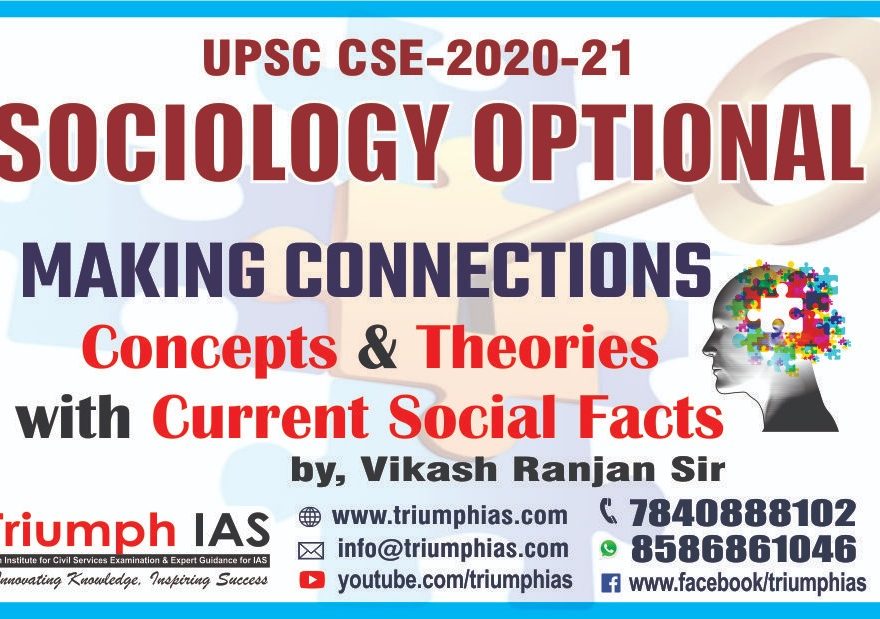COVID-19 & THE UNINTENDED CONSEQUENCES
Relevance: Sociology: Thinkers: Robert Merton & G.S paper I: Society and social issues: G.S paper II: Governance
Time to focus on unintended consequences of Covid-19

CONTEXT
The abrupt, unprecedented cessation of economic and public life to fight Covid-19 has been driven by necessity, but the Centre and state governments may need to urgently focus on the unintended side effects on public health and livelihoods too.
The first— and the most obvious — is the need to revive existing medical infrastructure to enable the treatment of non-Covid-19 medical conditions, which may worsen because the health care system is focused on the pandemic.
SOCIOLOGICAL PERSPECTIVE
The concept “unanticipated consequences,” coined by Robert K. Merton (1936), has largely been replaced in current social science by its putative synonym, “unintended consequences.” This conflation suggests that “unintended” consequences are also “unanticipated,” effectively obscuring an interesting and real category of phenomena—consequences that are both unintended and anticipated—that warrant separate attention. The first part of this article traces the conflation of “unintended” and “unanticipated,” and explains why it occurred.
The second part argues the need for a clear distinction between what is unintended and what is unanticipated, and it illustrates the failure of the present concept of “unintended consequences” to do so and the consequences that has for social and political analysis.
“Unintended consequences” remain a preoccupation in the social sciences, with its annals containing an ever-expanding collection of examples on the unwelcome side-effects of policy.
The idea that individual self-interested acts can produce benign aggregate outcomes that were neither intended nor foreseen is central to the spontaneous order tradition.
Merton’s article “Unanticipated Consequences of Purposive Social Action” builds on this tradition, but with an important difference. Merton was interested in the consequences of “formally organized” action, not the unorganized actions of “individuals considered distributively”.
“Unanticipated consequences,” Merton writes,
may, of course, follow both [unorganized and organized] action, though the second type would seem to afford a better opportunity for sociological analysis since the very process of formal organization ordinarily involves an explicit statement of purpose and procedure.
The literature on unintended consequences following Merton agrees, with most authors focusing on the unintended consequences of organized action, meaning the unwelcome outcomes of formal policy.
The distinction is important because the failure to anticipate outcomes is far from self-evident in organized action, whereas in a spontaneous order—the aggregate outcome of numerous unorganized individual actions—lack of anticipation is a given.
Anticipating the outcomes of purposive action is the core business of policy makers. They frequently fail, of course, and Merton aims to explain why.
Merton’s choice of terms (“unanticipated” rather than “unintended”) was by no means arbitrary; it clearly distinguishes unanticipated consequences from, say, those that are unintended but anticipated.
Unfortunately this clarity was obscured by the later conflation of “unintended” and “unanticipated”—a development to which Merton himself contributed.
Disappearance of the unanticipated
Social Theory and Social Structure used “unintended consequences” and “unanticipated consequences” as synonyms. While both were common terms in social science publications in the 1950s, references to “unintended consequences” began to outnumber “unanticipated consequences” in the early 1960s. “unintended consequences” is today the standard term while “unanticipated consequences” has all but fallen out of use.
True, unanticipated consequences can only be unintended, but unintended consequences can be either anticipated or unanticipated, a distinction lost in the single opposition of “intended” versus “unintended.
For more such notes, Articles, News & Views Join our Telegram Channel.
Click the link below to see the details about the UPSC –Civils courses offered by Triumph IAS. https://triumphias.com/pages-all-courses.php

